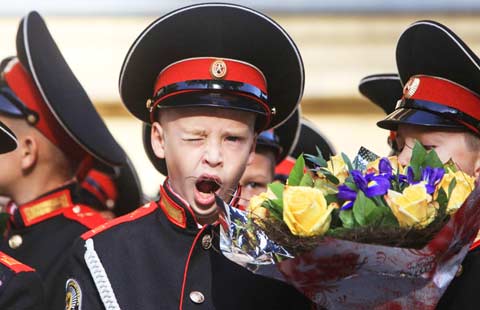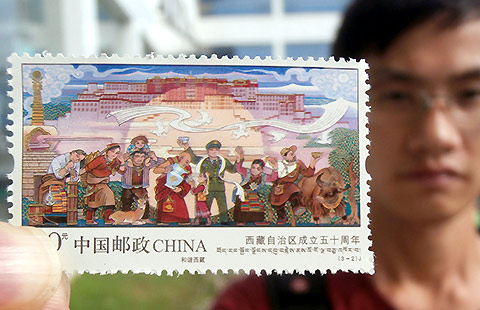Australia's opposition threatens China-Australia FTA
Updated: 2015-09-08 11:16
(Xinhua)
|
||||||||
CANBERRA - Australia's historic free trade agreement with China is at risk of falling through due to the opposing Labor Party, which has threatened to block the deal if adequate protection isn't given to Australian workers.
The China-Australia Free Trade Agreement (ChAFTA) was signed in Canberra on June 17 after 10 years and 21 rounds of negotiations between the two parties.
In that time, two Liberal leaders and two Labor leaders had sat at the negotiation table, before the deal was agreed to in- principle in November 2014.
But since the signing, the Australian Labor Party - typically a fighter for Australian workers and often backed by workers' unions - has not been quiet in its concerns over the final draft of the FTA.
Opposition leader Bill Shorten, along with union heads, have voiced concerns about protections for local jobs. They are worried that cheaper Chinese workers could be flown in at the expense of Australian laborers.
Shorten has said he would prefer a "safeguard" for Australian workers, while shadow Treasurer Chris Bowen has threatened to block the final version FTA, unless government representatives "go back to Beijing and renegotiate the deal".
This is despite former Labor leader Simon Crean, who was on the Labor panel that negotiated terms of the deal while Labor was in power back in 2013, saying the landmark agreement "should be supported".
Another former Labor leader and prime minister of Australia, Bob Hawke, has also supported the deal, while current Prime Minister, Tony Abbott, has said Shorten needs to listen to "good Labor people" and support the deal.
Not only are Labor representatives split on the issue, Labor voters are also confused, with a poll conducted by News Corp over the weekend revealing that 35 percent are in favor of the agreement going ahead, while 42 percent are against.
Meanwhile almost 65 percent of coalition voters are for the deal, while only 26 percent of Greens voters support the ChAFTA.
On Monday, Australia's Treasurer Joe Hockey warned Labor that a decade of negotiations could be ruined, saying China was likely to "walk away" from the deal if it was blocked by the opposition in parliament.
"Without putting words in (Chinese Finance Minister Lou Jiwei's) mouth, it is very clear that if the free-trade agreement is amended by the Labor Party, then China will walk away," Hockey said on Monday.
"It's taken 10 years to negotiate and they've extended a generous hand to us."
However Labor's concerns could be nullified by conditions placed on employers by Australia's Immigration Department in May.
News Corp reported on Tuesday that Australia's Department of Immigration and Border Protection had levied a notice to major project employers, which detailed that first preference on works must be given to Australian workers.
Named Project Agreements: Information for Employers Requesting a Project Labour Agreement, the documents said foreign workers may only be hired after an employer had actively advertised to Australian workers and had been unable to attract "suitable" staff.
However an investigation by local state media revealed the Immigration Department does not have to enact the policy.
Interestingly, aside from concerns over workers' rights, Labor has been in favor of the deal, with party president Mark Butler telling Sky News this week that Labor had "strong support" for the FTA.
Australia stands to benefit greatly from the agreement, which would reduce 95 percent of all tariffs on exported goods to China, such as livestock, agricultural products and perishables, such as dairy.
This will result in competitive prices for Chinese buyers - a win-win which is expected to increase sales and revenue to for farmers and exporters around Australia, while opening up an affordable market for Australian food and drink to China's growing middle class.
In return, it will be markedly easier for Chinese businesses to invest in Australia and easier for foreign workers to obtain visas for working holidays, while Australian restrictions on Chinese- manufactured electronics, whitegoods and other household items will be lifted.
Abbott has previously said the deal will be worth "billions" of dollars to the economy, adding to the 123.7 billion dollars in two- way trade (during 2013-14) between the nations.
The Abbott government has said it would like the relevant legislation passed in parliament by December, saying if it is delayed, Australia would miss the tariff cuts set to come into effect on Jan. 1, 2016.
Abbott however, is likely to push for an early agreement of the FTA.
The motion, likely to be introduced to parliament this week, will ask all members to approve the ChAFTA "in its negotiated form".

 Aerial view of Yamzho Yumco Lake in Tibet
Aerial view of Yamzho Yumco Lake in Tibet
 Chinese 'blade runners' fight for sports dreams
Chinese 'blade runners' fight for sports dreams
 The world in photos: Aug 31 - Sept 6
The world in photos: Aug 31 - Sept 6
 Breath of fresh air for a 'living fossil'
Breath of fresh air for a 'living fossil'
 Learn to behave like a real noble
Learn to behave like a real noble
 50th anniversary of Tibet autonomous region
50th anniversary of Tibet autonomous region
 Red carpet looks at the 72nd Venice Film Festival
Red carpet looks at the 72nd Venice Film Festival
 China beats Russia in 4 sets at volleyball World Cup
China beats Russia in 4 sets at volleyball World Cup
Most Viewed
Editor's Picks

|

|

|

|

|

|
Today's Top News
Sarah Palin: Immigrants should 'speak American'
Germany frees up funds for refugees, speeds up asylum procedures
China 2014 GDP growth revised down to 7.3%
White paper on Tibet reaffirms living Buddha policy
China to introduce circuit-breaker for stock market
Austria, Germany open borders to migrants
Central government steps up economic support for Tibet
China economy enters 'new normal' eyeing 7% growth rate: G20
US Weekly

|

|








